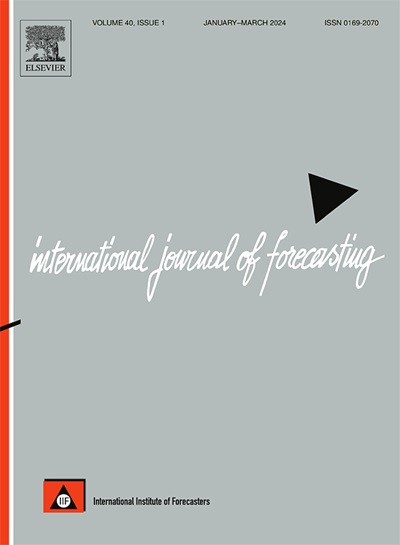Crowd prediction systems: Markets, polls, and elite forecasters
IF 6.9
2区 经济学
Q1 ECONOMICS
引用次数: 0
Abstract
What systems should we use to elicit and aggregate judgmental forecasts? Who should be asked to make such forecasts? We address these questions by assessing two widely used crowd prediction systems: prediction markets and prediction polls. Our main test compares a prediction market against team-based prediction polls, using data from a large, multi-year forecasting competition. Each of these two systems uses inputs from either a large, sub-elite or a small, elite crowd. We find that small, elite crowds outperform larger ones, whereas the two systems are statistically tied. In addition to this main research question, we examine two complementary questions. First, we compare two market structures—continuous double auction (CDA) markets and logarithmic market scoring rule (LMSR) markets—and find that the LMSR market produces more accurate forecasts than the CDA market, especially on low-activity questions. Second, given the importance of elite forecasters, we compare the talent-spotting properties of the two systems and find that markets and polls are equally effective at identifying elite forecasters. Overall, the performance benefits of “superforecasting” hold across systems. Managers should move towards identifying and deploying small, select crowds to maximize forecasting performance.
人群预测系统:市场、民意调查和精英预测者
我们应该使用什么系统来获取和汇总判断性预测?谁应该被要求做出这样的预测?我们通过评估两种广泛使用的人群预测系统来解决这些问题:预测市场和预测投票。我们的主要测试使用大型多年期预测竞赛的数据,比较了预测市场和基于团队的预测投票。这两种系统分别使用来自大型亚精英人群或小型精英人群的信息。我们发现,小型精英人群的预测结果优于大型人群的预测结果,而这两个系统在统计上打成平手。除了这个主要研究问题,我们还研究了两个补充问题。首先,我们比较了两种市场结构--连续双重拍卖(CDA)市场和对数市场评分规则(LMSR)市场--发现 LMSR 市场比 CDA 市场产生的预测更准确,尤其是在低活跃度问题上。其次,鉴于精英预测者的重要性,我们比较了两个系统的人才发现特性,发现市场和民意调查在发现精英预测者方面同样有效。总体而言,"超级预测 "的绩效优势在不同的系统中都适用。管理者应转向识别和部署小规模的精选人群,以最大限度地提高预测绩效。
本文章由计算机程序翻译,如有差异,请以英文原文为准。
求助全文
约1分钟内获得全文
求助全文
来源期刊

International Journal of Forecasting
Multiple-
CiteScore
17.10
自引率
11.40%
发文量
189
审稿时长
77 days
期刊介绍:
The International Journal of Forecasting is a leading journal in its field that publishes high quality refereed papers. It aims to bridge the gap between theory and practice, making forecasting useful and relevant for decision and policy makers. The journal places strong emphasis on empirical studies, evaluation activities, implementation research, and improving the practice of forecasting. It welcomes various points of view and encourages debate to find solutions to field-related problems. The journal is the official publication of the International Institute of Forecasters (IIF) and is indexed in Sociological Abstracts, Journal of Economic Literature, Statistical Theory and Method Abstracts, INSPEC, Current Contents, UMI Data Courier, RePEc, Academic Journal Guide, CIS, IAOR, and Social Sciences Citation Index.
 求助内容:
求助内容: 应助结果提醒方式:
应助结果提醒方式:


